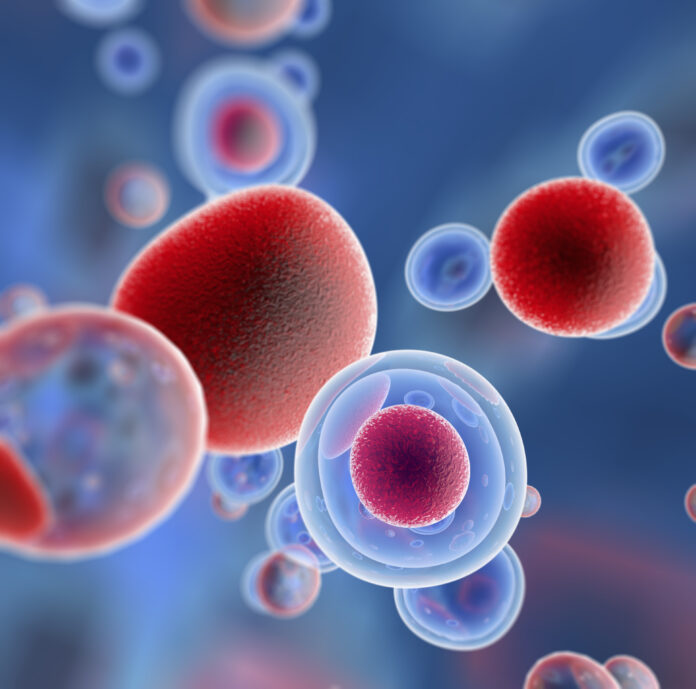City of Hope and Imugene Limited have begun phase 1 trials for a new oncolytic virus therapy for advanced solid tumors.
In recent years, oncolytic virus therapy has become widely popular for treating cancers. Viruses in nature are genetically modified to infect and kill cancer cells, while not harming healthy cells. These viruses replicate within the cancer cells. When the cancer cell dies, it releases additional infectious virus particles which then target remaining tumor cells. Moreover, these viruses can also stimulate the immune system’s anti-tumor response. Researchers have previously tested several viruses as oncolytic agents; these include herpes simplex, adenovirus, measles, and vaccinia. In 2015, the U.S and European Union approved their first oncolytic virus, a modified herpes simplex virus, for treatment of advanced melanoma.
Recently, researchers at Imugene Limited developed an oncolytic virus called CF33-hNIS, or VAXINIA. The immuno-oncology company has partnered with City of Hope, one of the largest cancer research and treatment organizations in the United States. The teams have begun phase 1 trials for its newly developed therapy.
Our previous research demonstrated that oncolytic viruses can stimulate the immune system to respond to and kill cancer, as well as stimulate the immune system to be more responsive to other immunotherapies, including checkpoint inhibitors. Now is the time to further enhance the power of immunotherapy, and we believe CF33-hNIS has the potential to improve outcomes for our patients in their battle with cancer.
Dr. Daneng Li, principal trial investigator
Previously, researchers routinely used immune checkpoint inhibitors for treatment of cancers. However, patients often develop resistance to it or relapse following therapy. Moreover, solid tumors often don’t respond to checkpoint inhibitors because the immune system still hasn’t recognized the tumor cell. The oncolytic virus addresses this problem by infecting cancer cells and making them more recognizable by the immune system. Therefore, researchers hope that combining oncolytic virus with these inhibitors can help enhance its immunotherapeutic effects.
First Patient Dosed in Trial
The clinical trial is titled ‘A Phase I, Dose Escalation Safety and Tolerability Study of VAXINIA (CF33- hNIS), Administered Intratumorally or Intravenously as a Monotherapy or in Combination with Pembrolizumab in Adult Patients with Metastatic or Advanced Solid Tumours (MAST)’. It will run for approximately 24 months.
Researchers hope to recruit 100 patients with any metastatic or advanced solid tumors. The patients must have received at least two prior lines of therapy, including an immune checkpoint inhibitor. As part of the trial, participants will receive the oncolytic virus either alone or in combination with pembrolizumab, an immunotherapy drug. Moreover, the patients will receive VAXINIA injections intravenously or directly into the tumor site.
The aim of the trial is to assess VAXINIA’s safety and tolerability. Once enough patients have received the lowest dose of the oncolytic virus, researchers will combine it with pembrolizumab for certain participants. The first patient in the Phase 1 clinical trial has already received a dose.
The dosing of the first patient in our VAXINIA study is a significant milestone for Imugene and clinicians faced with the challenge of treatment for metastatic advanced solid tumours.
Dr. Leslie Chong, Imugene Limited
The phase 1 trial is based on the results from preclinical animal trials that tested the treatment against several tumors. As per the studies, the therapy was highly effective at shrinking breast, lung, pancreatic, colon, and ovarian solid tumors. Moreover, researchers did not report any adverse side effects, or evidence of viral transmission among the mice. Thus, confirming that the virus is unlikely to transmit from infected to healthy individuals.
Oncolytic Virus Provide Hope for Cancer Treatment
Cancer treatment has considerably evolved over the past few decades. Radiation, chemotherapy, surgery, medications, and several other therapies have emerged over time. The treatment largely depends on the type of cancer and its stage. However, the end-goal of all treatments is the same: a cure for cancer. In recent years, immunotherapy has emerged as a possible method for treating cancers. It involves stimulating the patient’s own immune system to fight off cancer cells.
Researchers have particularly explored the role of chimeric antigen receptor (CAR) T cell therapy in treating various cancers. Recently, a team at University of Pennsylvania helped two patients achieve complete cancer remission using CAR T cells. CAR T cell therapy involves the use of a patient’s own T-cells that are re-engineered to develop chimeric antigen receptors on their surface. Once these modified T-cells re-enter the blood, they can recognize and kill cancer cells.
The team at City of Hope previously combined the oncolytic virus with CAR T cells to treat multiple mouse models of cancer. The combination was effective and safe at eliminating solid tumors that generally don’t respond to CAR T therapy alone.
Interestingly, the same characteristics that eventually make cancer cells resistant to chemotherapy or radiation treatment actually enhance the success of oncolytic viruses, such as CF33-hNIS.
Dr. Yuman Fong, key VAXINIA developer
The team of researchers hope that the combination of virology and immunotherapy will provide researchers with options for treating untreatable deadly cancers.




